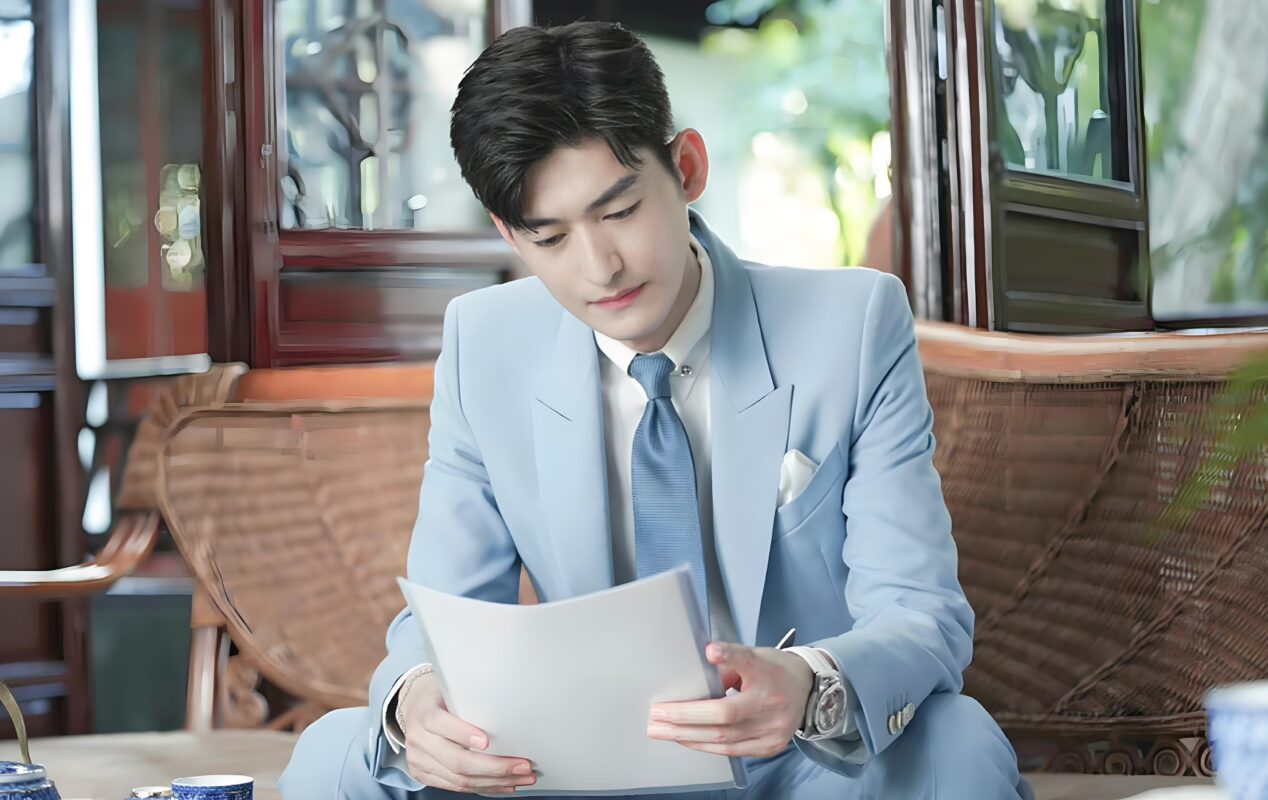1. Early Life and Entry into the Entertainment Industry
From Humble Beginnings to Artistic Aspirations
Zhang Han (张翰), born on October 6, 1984, in Qiqihar, Heilongjiang Province, embodies the archetype of a self-made artist in China’s competitive entertainment landscape. His upbringing in a middle-class family instilled in him a strong work ethic and a passion for performance. Despite limited exposure to the arts during his formative years, Zhang’s fascination with acting crystallized during his adolescence. He pursued a degree in Central Academy of Drama, one of China’s most prestigious drama schools, where he honed his craft under rigorous training. This period laid the groundwork for his nuanced understanding of character development and emotional authenticity—a hallmark of his later performances.
Zhang’s early career was marked by perseverance. Before achieving fame, he took on minor roles in television dramas and commercials, a phase he later described as “a baptism of humility.” These experiences not only refined his acting skills but also cultivated resilience, a trait that would prove invaluable in navigating the volatile entertainment industry.
2. Breakthrough Role and Rise to Prominence
Meteor Shower and the Birth of a Youth Icon
Zhang Han’s career trajectory changed irrevocably in 2009 when he was cast as Murong Yunhai in the idol drama Meteor Shower (一起来看流星雨). The series, a Chinese adaptation of the Taiwanese hit Meteor Garden, became a cultural phenomenon, catapulting Zhang to nationwide fame. His portrayal of the arrogant yet vulnerable protagonist resonated deeply with younger audiences, earning him the title of “National Boyfriend.”
Critics praised his ability to balance the character’s flamboyant exterior with subtle emotional depth—a duality that set him apart from contemporaries. The drama’s soundtrack, featuring Zhang’s vocals, further showcased his versatility and cemented his status as a multitalented entertainer. By 2010, Zhang had become synonymous with the “idol actor” label, though he actively sought to transcend this image in subsequent projects.
3. Expanding Horizons: Television, Film, and Music
Diversification as a Strategic Career Move
Television Triumphs
Post-Meteor Shower, Zhang strategically diversified his portfolio. In historical dramas like The Four (少年四大名捕) (2015), he embraced physically demanding roles, mastering martial arts choreography to portray a stoic detective. His performance in Boss & Me (杉杉来了) (2014), a romantic comedy, demonstrated comedic timing and romantic chemistry, earning him the Best Actor award at the 10th China TV Drama Awards.
Cinematic Explorations
Zhang’s foray into film—notably The Man Behind the Courtyard House (既然青春留不住) (2015) and The Secret of the Three Kingdoms (2018)—highlighted his willingness to tackle complex narratives. Critics lauded his transition from television heartthrob to serious actor, particularly his ability to convey internal conflict through restrained expressions.
Musical Ventures
Parallel to acting, Zhang released multiple singles, blending pop sensibilities with introspective lyrics. Tracks like Wind of the City (城市的风) (2016) reflect his artistic maturation, exploring themes of solitude and ambition.
4. Personal Life and Public Persona
Navigating Fame with Grace
Zhang Han’s personal life has been a subject of public fascination, particularly his high-profile relationship with actress Zheng Shuang (2009–2014). Despite media scrutiny, he has maintained a dignified silence on private matters, emphasizing that “an actor’s true self should be revealed through roles, not tabloids.”
His public image balances approachability and mystique. On social media, he shares glimpses of his philanthropic efforts and fitness regimen, fostering a connection with fans without oversharing. Industry insiders often commend his professionalism; directors describe him as “a collaborator who prioritizes collective success over individual accolades.”
5. Philanthropy and Legacy
Using Influence for Social Good
Beyond entertainment, Zhang Han is a dedicated philanthropist. He established the Zhang Han Charity Fund in 2017, focusing on education for underprivileged children and disaster relief. During the 2020 COVID-19 pandemic, he donated 1 million RMB to Wuhan and participated in awareness campaigns, stating, “Celebrity status is meaningless if it doesn’t translate into societal impact.”
His legacy lies in redefining Chinese idol culture. By consistently choosing roles that challenge stereotypes—from CEO archetypes to morally ambiguous antiheroes—he has expanded the narrative possibilities for actors of his generation. As filmmaker Feng Xiaogang remarked, “Zhang represents a new breed of artist: commercially viable yet artistically ambitious.”
Conclusion: The Evolution of an Icon
Zhang Han’s journey—from a small-town dreamer to a multifaceted icon—mirrors China’s evolving entertainment industry. His career, marked by strategic risks and artistic integrity, offers a blueprint for sustaining relevance in an industry often criticized for its transience. As he continues to explore new creative frontiers, Zhang remains a testament to the power of reinvention, proving that true stardom lies not in fleeting popularity but in enduring contribution.
(Note: For further details on Zhang Han’s filmography or philanthropic initiatives, refer to authoritative entertainment databases or his official social media channels.)

